All TV and No Theatrical Releases Make Mick Garris a Dull Director.
Main Cast: Steven Weber, Rebecca De Mornay
Director: Mick Garris
While I fully support King’s dislike of the original film adaptation of his novel THE SHINING, and his reasons for not liking it, and while I fully support his desire to write and produce his own version of the movie, one that sticks closer to the plot and details of the novel, and I even support his decision to make said adaptation a TV mini-series, despite all the constrictions that’s going to put on the thing due to Standards and Practices, and I even support being fiercely loyal to your friends … did he seriously have to get Mick Garris to direct?
Hell, I fully support and admire Garris’s devotion to the horror genre. He’s been a huge voice in championing horror for decades. He just doesn’t make good horror movies. In fact, he makes very obvious TV horror, full of the constrictions put on it due to Standards and Practices. Having seen all of his King adaptations, I’m reminded of the terrible kids’ stuff The Rock made when he was first getting started, stuff like THE GAME PLAN, RACE TO WITCH MOUNTAIN, and TOOTH FAIRY. Horror for the whole family is nothing I’m interested in and it’s an insult to the strength of the novel.
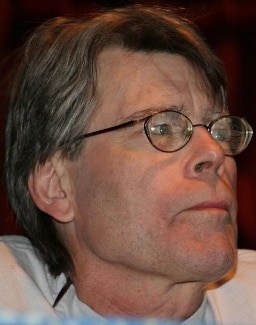
Let’s look at this realistically. THE SHINING is considered by most to be one of King’s scariest novels. It’s one of only 3 or 4 novels that have EVER given me any kind of fright. So you put the guy who directed PSYCHO IV: The Beginning and SLEEPWALKERS in charge of it? The guy who made Randall Flagg, King’s most devious villain, into a middle aged mullet-wearing Springsteen wannabe? There’s a reason most of Garris’s credits are on television, and sure maybe that’s something to think about when you’re adapting THE SHINING for television, but maybe you get a guy who has made a career out of genre-defining horror and let him turn those talents toward the small screen and see what he can do. I’d rather take a dangerous guy and tell him “Okay, now be careful” and watch him push the limits of safety than a guy whose entire life is built on catering to the censors. THE SHINING is a horror story, and the adaptation, despite being broken up into acts to make room for commercial breaks, needs to be a horror adaptation. A horror adaptation. And a horror adaptation does not keep repeating the line “Kissing, kissing, that’s what I been missing.”
Okay, we blame that one on King since he wrote the script, but a director who’s making a horror film questions that line and has a talk with the writer everyone in the free world agrees could use a strict editor.
And I haven’t even properly started this review.
So I recently, finally, rewatched the 1997 adaptation of THE SHINING, written by King and directed by Mick “Critters 2” Garris. Now I remember why I waited so long to get back to it.
It was never any secret King didn’t like the Kubrick version of the movie–you know, the one everyone pretty much agrees is a horror classic (I don’t know if I’d go that far, it is a good horror movie, but a mediocre adaptation of a fantastic book)–and finally he was allowed to make his own version, this time telling the story that was actually in the book. Believe it or not, Kubrick left out whole chunks of plot and character development in favor of great acting and beautiful shots. Which one was better?
I guess it depends on what you’re looking for in a good SHINING adaptation. A wonderful viewing experience? Kubrick. The Shining novel, bereft of any terror, but faithful to the plot? King.
In both versions, Jack Torrance is spending the winter as the caretaker of The Overlook Hotel, snowed in in the mountains of Colorado with his wife Wendy and 7-year-old son, Danny. Jack is a recovering alcoholic, Wendy forgives but never forgets, Danny is psychic, and the hotel is very very incredibly haunted. As the snow comes and the Torrances are cut off from the outside world, mayhem ensues as the ghosts feed on Danny’s psychic energy and play on Jack’s fragile mental state, his anger problems, and his desire to do his job.
In both versions, Jack is driven to insanity and a line he can never uncross. However, in the Kubrick version, King’s opinion was that Jack Nicholson’s take on the character looked insane from day one. And he’s not wrong. In fact, when I read the book for the first time and saw how gradual that downward spiral really was, I could totally see King’s point in not liking the movie. But I also couldn’t deny that, while not an adaptation of the book, it is still a pretty great horror movie.
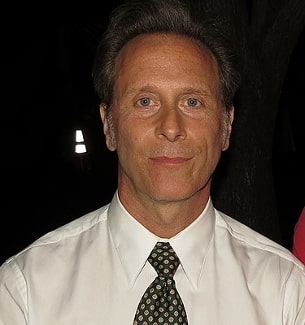
Enter Steven Weber’s take on Jack Torrance. The one thing in this entire adaptation that I could appreciate was Weber’s performance as the husband and father struggling to keep it together under the weight of a slew of mistakes. Just when you think Jack’s turned that corner past the point of no return, Weber brings him back, showing the struggle the character really was fighting with. For all its many many flaws, I have to give this tepid adaptation credit for getting that aspect of the story right.
I’ve been a long time fan of Weber (Wings is one of my all-time favorite shows), and he’s a pretty big horror fan, too, so I think he was an excellent choice for this role. I just wish he’d had better material to work with. In the novel, angry/crazy Jack calls Danny a “pup”, and in the novel that line … works, I suppose. But in reality, hearing someone say it out loud, it’s such a jarringly bad line, it takes you out of the story. Same with “Come and take your medicine.” The line works in the novel, not so much in real life. And God love him, Weber is a talented actor, but even he can’t pull off this dialogue. And then of course the infamous “Kissing, kissing, that’s what I been missing.” That’s not a line from the novel, King added it for the mini-series. I have no idea why.
Rebecca De Mornay plays Wendy, the role originally given to Shelly Duvall in the Kubrick version. Both versions have their pros, but I think De Mornay gives Wendy a strength Duvall never mustered. This Wendy I believe really would have taken Danny and walked away from the hotel if she had to. All in all, she probably gave the most realistic performance in the entire movie.
Then we come to Danny, played this time by Courtland Mead. Mead was 10 at the time he made this movie, playing 7-year-old Danny and I couldn’t help but feel sorry for the kid. Not because he’s a little kid making what I’m sure was supposed to be a terrifying movie but because he’s stuck in this movie. Really, he should have been off playing or watching cartoons. Instead he spent his time making the Goosebumps equivalent of THE SHINING.
And we can’t forget Tony, Danny’s imaginary friend. In Kubrick’s version, Tony was the little man who lived in Danny’s mouth and when he talked, he was manifested physically in Danny’s finger, bobbing around like a stick figure while Danny croaked out Tony’s dialogue. It was unsettling and creepy. In King’s official version of the movie, Tony is a young man dressed in beige and wearing the round wire-frame glasses John Lennon made so famous. Also in King’s version, the end of the movie gives us a Tony reveal that, while unexpected, was also 100% unnecessary!
God, I wish I loved this movie. I had read the book twice when this movie came out, and when I first heard about it, and heard that King was adapting the novel way more faithfully than Kubrick had done, I was very excited. Stephen King’s version of THE SHINING had to be something amazing, something to show everyone this is what THE SHINING is supposed to be.
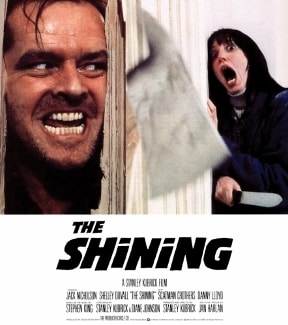
Well, he showed us, alright. And I know it was 1997 and CGI technology wasn’t what it would eventually become, but holy Christ. This version has the infamous hedge animals come to life and stalk Jack and Danny and it was a scene many people missed in the Kubrick version–replaced by the confusing hedge maze scene with Jack standing over the mock-up in the hotel lobby and maybe seeing Danny and Wendy in miniature? We never really know, so it was something I was looking forward to understanding when I read the book, and then discovered it’s not even in there, replaced instead by hedge animals. So when I heard King was keeping the hedge animals, again, I was excited at how they would look. And then I saw how they looked and I wasn’t just disappointed, I was disappointed they didn’t see the final version of the movie and immediately scramble to put the hedge maze back in there.
Same with the fire hose that comes after Danny, which was another good scare in the book, only to come off as nothing more than another bad CGI job in a psychic vision Danny has. This time with the nozzle turning into a mouth full of grinning metal teeth. Yes, it looks just as dumb as it sounds.
But I think the most egregious and unforgivable part of this movie–for me–was the Redrum reveal. In the Kubrick version–and I hate that in reviewing this movie I keep having to refer back to the Kubrick version, but you’ve seen that version, many times, I’m sure, so it’s just the easiest way for me to draw my comparisons–and comparisons are going to be drawn, it’s just the way it is–the reveal is shocking and sudden and full of dread. In the ‘97 version Danny sees the word on the wall once and asks Wendy what it means. She has no idea. The next time he sees it, again as letters in red on the wall, the CGI letters dissolve and shift until the word is reversed and Danny sees, DUN DUN DUNNNNN, MURDER! There is no buildup, no suspense, no tension and no release. The entire idea of Redrum, in this version, falls flat without a hint of menace.
I do appreciate that King included the novel’s climax, something I missed from the original movie, but then he had to tack on the TV ending and ruin it. The flash forward, and then the totally cliché and predictable stinger at the end, they didn’t necessarily take me out of the movie and the halfway compelling sense of drama that had been building as they threw me out of it and brought me back to reality where I remembered, Oh yeah, this is a TV movie, made by the guy who did SLEEPWALKERS, one of the least scary and most incomprehensible King movies ever made. I almost forgot.
There is only one condition under which I could ever recommend this movie. My daughter’s girlfriend and a friend of theirs made a drinking game where they watch a bad movie and, every time something serious makes them laugh or they roll their eyes, they take a drink. I suggested they watch this one. Otherwise, if you want to continue seeing THE SHINING as one of King’s scariest and most engaging works, avoid this one at all costs. It will seriously tarnish your opinion of the story as a whole.
Images: Pinguino (CC 2.0), Greg2600 (CC 2.0)

C. Dennis Moore is the author of over 60 published short stories and novellas in the speculative fiction genre. Most recent appearances are in the Dark Highlands 2, What Fears Become, Dead Bait 3 and Dark Highways anthologies. His novels are Revelations, and the Angel Hill stories, The Man in the Window, The Third Floor, and The Flip.

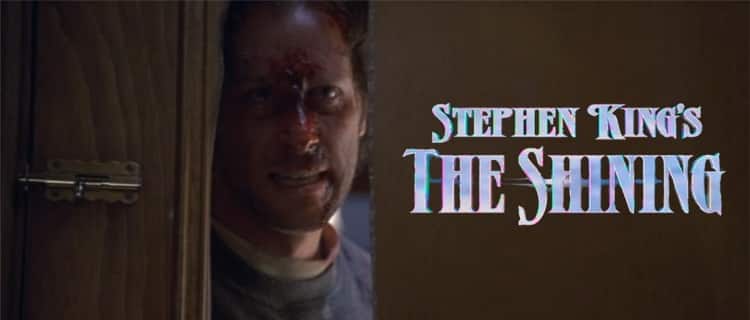


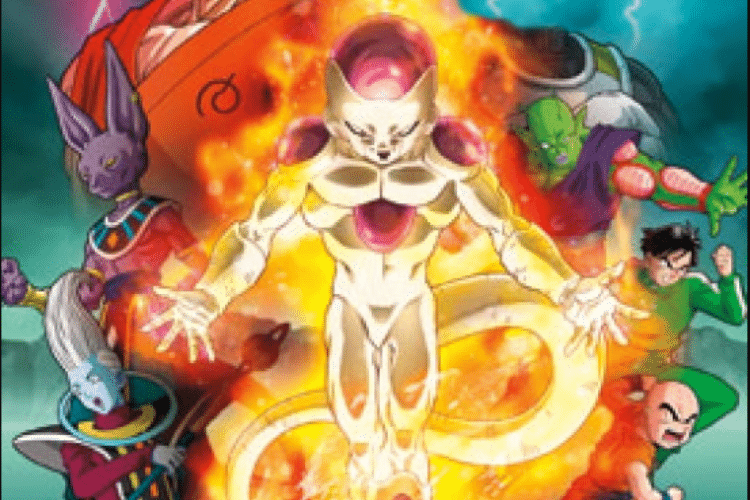
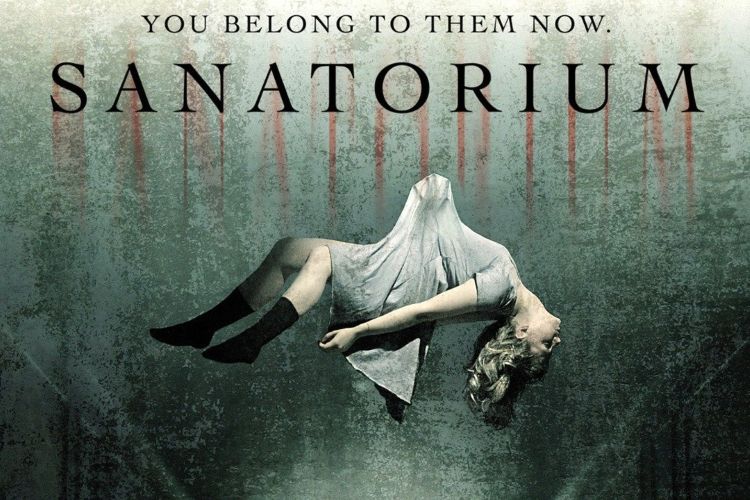
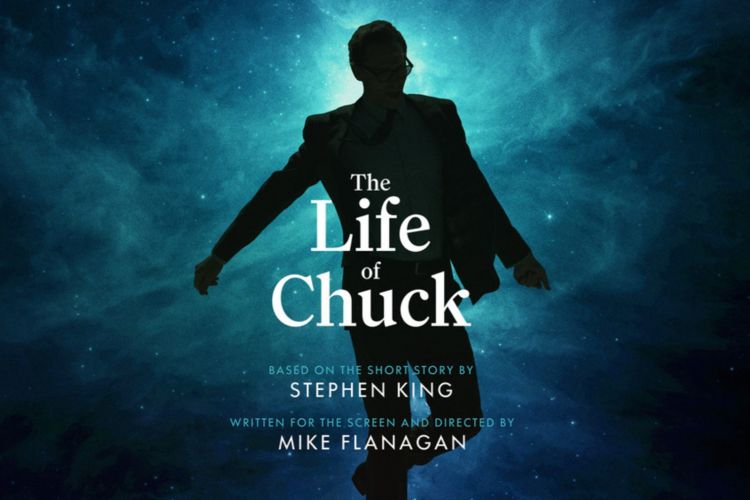
Leave a Reply